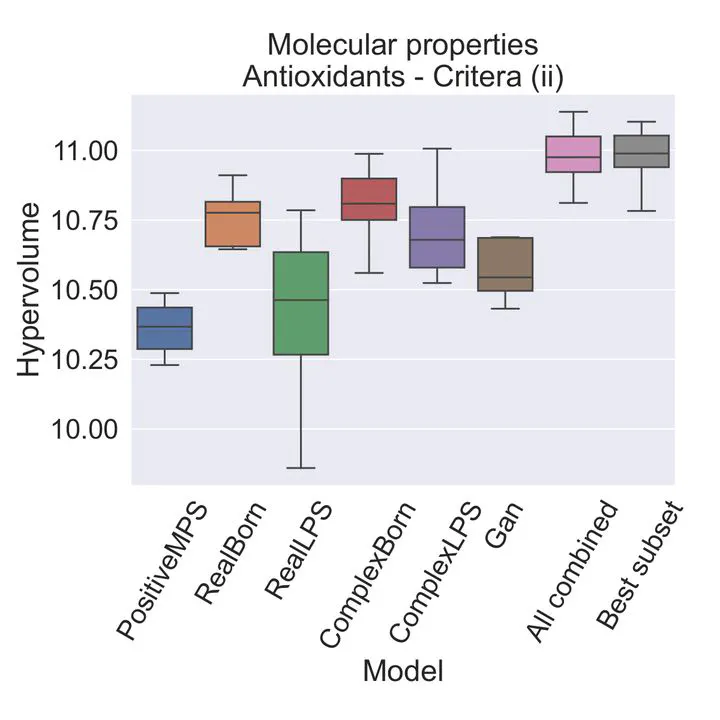Application of quantum-inspired generative models to small molecular datasets
Sep 17, 2023·
 ,
,
,
,
·
0 min read
,
,
,
,
·
0 min read
Charles Moussa
Hao Wang
Mauricio Araya-Polo
Thomas Bäck
Vedran Dunjko

Abstract
Quantum and quantum-inspired machine learning has emerged as a promising and challenging research field due to the increased popularity of quantum computing, especially with near-term devices. Theoretical contributions point toward generative modeling as a promising direction to realize the first examples of real-world quantum advantages from these technologies. A few empirical studies also demonstrate such potential, especially when considering quantum-inspired models based on tensor networks. In this work, we apply tensor-network-based generative models to the problem of molecular discovery. In our approach, we utilize two small molecular datasets, a subset of 4989 molecules from the QM9 dataset and a small in-house dataset of 516 validated antioxidants from TotalEnergies. We compare several tensor network models against a generative adversarial network using different sample-based metrics, which reflect their learning performances on each task, and multiobjective performances using 3 relevant molecular metrics per task. We also combine the output of the models and demonstrate empirically that such a combination can be beneficial, advocating for the unification of classical and quantum(-inspired) generative learning.
Type
Publication
C. Moussa, H. Wang, M. Araya-Polo, T. Bäck and V. Dunjko, “Application of quantum-inspired generative models to small molecular datasets,” 2023 IEEE International Conference on Quantum Computing and Engineering (QCE), Bellevue, WA, USA, 2023, pp. 342-348.